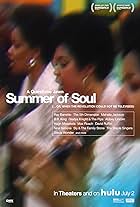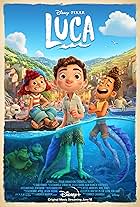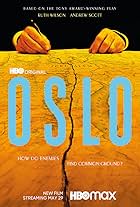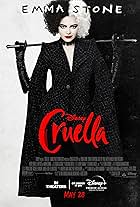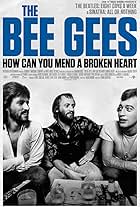jadepietro
Joined Mar 2011
Welcome to the new profile
We're still working on updating some profile features. To see the badges, ratings breakdowns, and polls for this profile, please go to the previous version.
Ratings696
jadepietro's rating
Reviews713
jadepietro's rating
IN BRIEF: A great musical documentary that enlightens and entertains.
JIM'S REVIEW: (RECOMMENDED) Long lost footage of this musical concert event becomes a chronicle of the times in Questlove's highly entertaining directorial debut, Summer of Soul (...Or, When the Revolution Could Not Be Televised. Simply stated, it is one of the best music documentary I have ever seen. The subject is the rarely discussed 1969 Harlem Cultural Festival. Haven't heard of it? Neither did I. Just another Black experience erased from memory or rewritten in time? But just look at the roster of performers and ask yourself why: Stevie Wonder, Mahalia Jackson, Nina Simone, The 5th Dimension, Sly and the Family Stone, B. B. King, and Gladys Knight and the Pips, to name a few. Plus, Jackie "Moms" Mabley, The Staple Singers, The Chamber Brothers, Hugh Masekela, and others.
Surprisingly, for 50 years, the actual reels of film of this outdoor concert remained in a basement...unheard and unseen these many years until director and editor Akmir "Questlove" Thompson began to piece the pieces together 40 hours of concert footage. This documentary focuses on the "revolution" that was just beginning and this film captures the fashions, cultures, politics, and social consciousness that was part of the era.
But this is not just a recording of a concert. Deeper issues are set in motion by the director. He culled through archival footage of this staged event and mostly celebrates the music while revealing the prevailing prejudice of those turbulent times when being young, gifted, and Black still met with racism and violence. His film mixes the power of music as a uniting force against the backdrop of protest movements and the ongoing brutality of unjust laws. The film becomes an historic record of the turmoil of the Civil Rights movement as it deftly blends interviews of festival attendees and performers with news footage of life-changing events like the assassinations of Martin Luther King, Malcolm X, and the Kennedys, or the violent looting and rioting that burned down the cities in protest. Many of the performing acts were established or emerging artists and their uptempo musical contributions are more than nostalgic afterthoughts. They become the soundtrack of a new era when a change was gonna come...and it did.
Essentially, this was the "Black Woodstock" and it captures the pangs of youthful rebellion, artistic creativity, and social unrest. The concert was organized and hosted by Tony Lawrence and, fortunately, his dated introductions and preachy rhetoric by religious and political leaders are shown at a minimum. The director lets the music be the main message and his film celebrates the soul of a generation. He emphasizes the festival's musical diversity, a blending of gospel, blues, jazz, and pop intermixed with Cuban and Puerto Rican music. Questlove does not shy away from political hot topics either, addressing poverty, segregation, and drug addiction that permeated Harlem's black and brown communities. Particularly enlightening is a segment about the historic 1969 moon landing and the reaction of the festival-goers, set to The Staple Singers' It's Been a Change.
But there are so many musical highlights to enjoy: Sly and the Family Stone's Everyday People, Gladys Knight & the Pips' I Heard It Through the Grapevine, and The Fifth Dimension, in their orange fringed vests, performing the infectious Aquarius/ Let The Sun Shine medley. (They also discuss the song's history and their need to perform at this festival as a means to legitimize their music to a Black audience.) Perhaps, the pinnacle of artistry in the film is provided in a duet by Mavis Staple and Mahalia Jackson doing MLK favorite hymn, Precious Lord. Or possibly, a dynamic set by The First Lady of Soul, Nina Simone. Her powerful Backlash Blues and an introduction of a new song that would later become a Black anthem, To Be Young, Gifted, and Black, mesmerized the crowd...and this reviewer.
Further insights from the performers themselves commenting on their acts and the reactions from the crowds are an added plus. One small flaw are the many voiceovers which regularly interrupt some of the musical moments and serve as references to the song's history, but the spoken words fade into the vocal interludes most effectively. Some minor acts are also given short shrift to make way for the major headliners, but whittling down the festival's lengthy set-lists was a huge undertaking and the director's chooses most wisely.
Questlove lets the music play. His beautifully edited documentary follows the musical diversities along with the cultural changes. Afros were a statement of Black heritage and youthful freedom. Activist groups like the Black Panthers were now part of the culture divide, "Negro" became a derogatory term, replaced by Black as a symbol of pride in 1969. The film shows this and more. Summer of Soul (...Or, When the Revolution Could Not Be Televised) is plain terrific! (GRADE: A-)
JIM'S REVIEW: (RECOMMENDED) Long lost footage of this musical concert event becomes a chronicle of the times in Questlove's highly entertaining directorial debut, Summer of Soul (...Or, When the Revolution Could Not Be Televised. Simply stated, it is one of the best music documentary I have ever seen. The subject is the rarely discussed 1969 Harlem Cultural Festival. Haven't heard of it? Neither did I. Just another Black experience erased from memory or rewritten in time? But just look at the roster of performers and ask yourself why: Stevie Wonder, Mahalia Jackson, Nina Simone, The 5th Dimension, Sly and the Family Stone, B. B. King, and Gladys Knight and the Pips, to name a few. Plus, Jackie "Moms" Mabley, The Staple Singers, The Chamber Brothers, Hugh Masekela, and others.
Surprisingly, for 50 years, the actual reels of film of this outdoor concert remained in a basement...unheard and unseen these many years until director and editor Akmir "Questlove" Thompson began to piece the pieces together 40 hours of concert footage. This documentary focuses on the "revolution" that was just beginning and this film captures the fashions, cultures, politics, and social consciousness that was part of the era.
But this is not just a recording of a concert. Deeper issues are set in motion by the director. He culled through archival footage of this staged event and mostly celebrates the music while revealing the prevailing prejudice of those turbulent times when being young, gifted, and Black still met with racism and violence. His film mixes the power of music as a uniting force against the backdrop of protest movements and the ongoing brutality of unjust laws. The film becomes an historic record of the turmoil of the Civil Rights movement as it deftly blends interviews of festival attendees and performers with news footage of life-changing events like the assassinations of Martin Luther King, Malcolm X, and the Kennedys, or the violent looting and rioting that burned down the cities in protest. Many of the performing acts were established or emerging artists and their uptempo musical contributions are more than nostalgic afterthoughts. They become the soundtrack of a new era when a change was gonna come...and it did.
Essentially, this was the "Black Woodstock" and it captures the pangs of youthful rebellion, artistic creativity, and social unrest. The concert was organized and hosted by Tony Lawrence and, fortunately, his dated introductions and preachy rhetoric by religious and political leaders are shown at a minimum. The director lets the music be the main message and his film celebrates the soul of a generation. He emphasizes the festival's musical diversity, a blending of gospel, blues, jazz, and pop intermixed with Cuban and Puerto Rican music. Questlove does not shy away from political hot topics either, addressing poverty, segregation, and drug addiction that permeated Harlem's black and brown communities. Particularly enlightening is a segment about the historic 1969 moon landing and the reaction of the festival-goers, set to The Staple Singers' It's Been a Change.
But there are so many musical highlights to enjoy: Sly and the Family Stone's Everyday People, Gladys Knight & the Pips' I Heard It Through the Grapevine, and The Fifth Dimension, in their orange fringed vests, performing the infectious Aquarius/ Let The Sun Shine medley. (They also discuss the song's history and their need to perform at this festival as a means to legitimize their music to a Black audience.) Perhaps, the pinnacle of artistry in the film is provided in a duet by Mavis Staple and Mahalia Jackson doing MLK favorite hymn, Precious Lord. Or possibly, a dynamic set by The First Lady of Soul, Nina Simone. Her powerful Backlash Blues and an introduction of a new song that would later become a Black anthem, To Be Young, Gifted, and Black, mesmerized the crowd...and this reviewer.
Further insights from the performers themselves commenting on their acts and the reactions from the crowds are an added plus. One small flaw are the many voiceovers which regularly interrupt some of the musical moments and serve as references to the song's history, but the spoken words fade into the vocal interludes most effectively. Some minor acts are also given short shrift to make way for the major headliners, but whittling down the festival's lengthy set-lists was a huge undertaking and the director's chooses most wisely.
Questlove lets the music play. His beautifully edited documentary follows the musical diversities along with the cultural changes. Afros were a statement of Black heritage and youthful freedom. Activist groups like the Black Panthers were now part of the culture divide, "Negro" became a derogatory term, replaced by Black as a symbol of pride in 1969. The film shows this and more. Summer of Soul (...Or, When the Revolution Could Not Be Televised) is plain terrific! (GRADE: A-)
Helpful•84
IN BRIEF: A movie too slick and too dumb to be believed.
JIM'S REVIEW: (NOT RECOMMENDED) Please take this mini-quiz before seeing Liam Neeson in his latest action thriller to decide if you wish to see it:
1. Liam Neeson once again: A. Plays a man fighting bad guys, this time generically named Mike McCann.
B. continues to waste his acting talents on silly dreck.
C. sounds gruff, nasty, and always means business.
D. All of the above
2. The plot for The Ice Road is: A. About a treacherous rescue mission by ice road truckers to save trapped miners.
B. Neeson fighting villains and some trucks moving across cracking ice.
C. truly implausible and totally inane.
D. All of the above.
3. Liam Neeson's character actually says: A. "Those b****rds, they caused the cave-in and now they're trying to cover it up?" B. "It's not about the money now. This is personal!" C. "Kiss my Irish a**!" D. All of the above
4. Director Jonathan Hensleigh has made:: A. A heavy-handed mess of a movie.
B. an epic parable of good vs. Evil, corporate greed, and heroism.
C. a laughable rescue movie in need of its own rescue.
D. All of the above, except B.
(GRADE: C-)
JIM'S REVIEW: (NOT RECOMMENDED) Please take this mini-quiz before seeing Liam Neeson in his latest action thriller to decide if you wish to see it:
1. Liam Neeson once again: A. Plays a man fighting bad guys, this time generically named Mike McCann.
B. continues to waste his acting talents on silly dreck.
C. sounds gruff, nasty, and always means business.
D. All of the above
2. The plot for The Ice Road is: A. About a treacherous rescue mission by ice road truckers to save trapped miners.
B. Neeson fighting villains and some trucks moving across cracking ice.
C. truly implausible and totally inane.
D. All of the above.
3. Liam Neeson's character actually says: A. "Those b****rds, they caused the cave-in and now they're trying to cover it up?" B. "It's not about the money now. This is personal!" C. "Kiss my Irish a**!" D. All of the above
4. Director Jonathan Hensleigh has made:: A. A heavy-handed mess of a movie.
B. an epic parable of good vs. Evil, corporate greed, and heroism.
C. a laughable rescue movie in need of its own rescue.
D. All of the above, except B.
(GRADE: C-)
Helpful•1410
IN BRIEF: A horror of a film.
JIM'S REVIEW: (NOT RECOMMENDED) False Positive is a loopy and uninspired horror film about infertility and "mommy brains", a phrase I never heard of, but everyone else in this movie has, since they banter the term regularly throughout the movie. The film is a very bad re-working of Rosemary's Baby without the supernatural ties or the class.
Lucy and Adrian Martin (Ilana Glaser and Justin Theroux) have been desperately trying to have a child to no avail. After Adrian urges his wife to use the services of his mentor and eminent fertility doctor, Dr. John Hindle (Pierce Brosnan), they score a triple run on their first time at bat. But as Lucy contends with her pregnancy complications, be they real or imagined, strange events continually occur, none of which are ever fully explained. Are things being created in her "mommy brain", or are others conspiring around her? She'll find out in nine months. As for moviegoers, you never do with this muddled far-fetched screenplay.
There is no logic or suspense in this foreboding tale, just lots of dopey nightmarish sequences, cheesy CGI that are downright silly, and a blood-spattered Grand Guignol climax that implodes every scene before it. Mr. Lee's direction is consistently sub-par and he unsuccessfully relies on visual excesses and bloody gore effects to build tension. (Cinematographer Pawel Pogorzelski must have taken Mr. Lee's discussions with him about making a dark thriller far too literally, as many "atmospheric" scary scenes are dimly photographed which hides any possible action.)
The screenplay by director/writer John Lee and its leading lady, Ms. Glaser, purport their film to be a disturbing psychological thriller, but everyone acts either so sinister or strangely proper that nothing makes any sense. Scares are at a minimum, unintentional laughs are more a-plenty.
The actors (and the audience) deserve better, although Mr. Brosnan comes off unscathed as the good doctor, and Gretchen Mol as his loyal Stepford nurse provides some nicely underplayed menace. As the new parents, Mr. Theroux has no real character to play and doesn't, and as for Ms. Glaser, let's just say she's no Mia. Good grief, she's more Mamma Mia in her stilted acting choices.
No, there is nothing really positive that I can say about the disappointing and absurd False Positive. Except to add: Prognosis negative...mommy brains and all!
JIM'S REVIEW: (NOT RECOMMENDED) False Positive is a loopy and uninspired horror film about infertility and "mommy brains", a phrase I never heard of, but everyone else in this movie has, since they banter the term regularly throughout the movie. The film is a very bad re-working of Rosemary's Baby without the supernatural ties or the class.
Lucy and Adrian Martin (Ilana Glaser and Justin Theroux) have been desperately trying to have a child to no avail. After Adrian urges his wife to use the services of his mentor and eminent fertility doctor, Dr. John Hindle (Pierce Brosnan), they score a triple run on their first time at bat. But as Lucy contends with her pregnancy complications, be they real or imagined, strange events continually occur, none of which are ever fully explained. Are things being created in her "mommy brain", or are others conspiring around her? She'll find out in nine months. As for moviegoers, you never do with this muddled far-fetched screenplay.
There is no logic or suspense in this foreboding tale, just lots of dopey nightmarish sequences, cheesy CGI that are downright silly, and a blood-spattered Grand Guignol climax that implodes every scene before it. Mr. Lee's direction is consistently sub-par and he unsuccessfully relies on visual excesses and bloody gore effects to build tension. (Cinematographer Pawel Pogorzelski must have taken Mr. Lee's discussions with him about making a dark thriller far too literally, as many "atmospheric" scary scenes are dimly photographed which hides any possible action.)
The screenplay by director/writer John Lee and its leading lady, Ms. Glaser, purport their film to be a disturbing psychological thriller, but everyone acts either so sinister or strangely proper that nothing makes any sense. Scares are at a minimum, unintentional laughs are more a-plenty.
The actors (and the audience) deserve better, although Mr. Brosnan comes off unscathed as the good doctor, and Gretchen Mol as his loyal Stepford nurse provides some nicely underplayed menace. As the new parents, Mr. Theroux has no real character to play and doesn't, and as for Ms. Glaser, let's just say she's no Mia. Good grief, she's more Mamma Mia in her stilted acting choices.
No, there is nothing really positive that I can say about the disappointing and absurd False Positive. Except to add: Prognosis negative...mommy brains and all!
Helpful•1911
